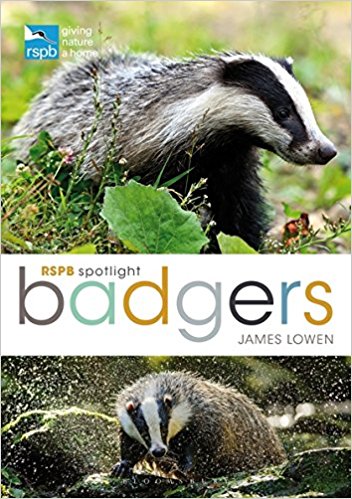Time Planning
| RSPB Spotlight on Badgers book |
 |
James
Lowen explores the lives of badgers and their communal
living, feeding habits and threats to their conservation. Click
here to buy:
Paperback edition
Kindle edition
|
The licensing system controls how development work can proceed
and this revolves strongly around the natural life-cycle of the badger. There are
some times of year at which no building work will be permitted near badger
setts; and it will pay great dividends if any developer understands these
limitations as early as possible. If you want to make the best of the
available "window" when building and constructions works are
allowed, you need to make sure your project manager understands the rules
and regulations, and the deadlines involved AT THE PLANNING STAGE! Failure
to do this will frequently result in very serious and expensive delays.
The effect of delays and cost over-runs can be especially
important in scenarios where payments and bonuses to contractors are
dependent on completion to a deadline; and onerous penalty clauses may
apply if deadlines are missed.
The very first thing we would recommend is that you contact a Badger
Consultant and brief them on what you have planned. You should do this
well BEFORE you apply for planning permission. In very many cases, the
consultant will recommend that a badger survey is carried out. If badgers
occupy the land on which you wish to build, they and their setts will be
protected; and this will result in an almost certain refusal of planning
permission; unless you can show how the badgers and their setts can be
accommodated within the development. A detailed badger survey in such
circumstances is the essential first step.
In smaller developments (like extensions to buildings, building
conversions and isolated infill housing), you could contact a Badger
Group instead. They may cost you less money; and may be all you need
if you just want proof that there are "no badgers". However, for
large high-value developments, a Badger
Consultant may have a greater feeling for
logistics, project management and commercial reality.
Why do a badger survey?
There are all manner of reasons to do a badger survey.
For example, you might just be interested to see whether there are any
badgers near you and whether the habitat and location is suitable for
badgers.
You might also want to keep a watch on badger numbers locally to see
whether our increasingly busy roads are increasing the number of badgers
that are getting run over and killed every year.
You might also love the green and pleasant outlook from your house and
hope you can find some badgers to stop property developers putting some
new houses up. In reality, the presence of badgers may be sufficient to
make a development more costly or less profitable, but it would not
normally be enough to stop a large commercial developer who is determined
enough.
You might also be a developer, who is thinking about building a few
nice new homes on a site; and you just want to know whether the presence
of badgers might make things too expensive for you.
You might be a local authority, who is trying to find a good reason why
you should keep that nice green space, as a green space, rather than
allocating it for development or calling it "brown-field" to
satisfy some faceless Whitehall-based Mandarin.
In short, people commission badger surveys done for all manner of
reasons - not all of them sinister.
Who should carry out a badger survey?
The ONLY people who should carry out a badger survey are those people
who have expert experience of carrying out badger surveys. This will
include Badger Consultants as well as Badger
Groups and some wildlife trusts. These experts will be totally
familiar with badger-specific techniques such as bait-marking, sett
observation and identification; and all the English Nature Licensing
rules, regulations and procedures.
Frankly, a badger survey conducted by a non-expert is not worth the
paper it's written on - especially if it is easy to call into question its
thoroughness, accuracy or legitimacy. We would always advise you to get
the best badger survey done you can - especially if planning, financial or
legal interests are or may become important.
We are aware of cases where planning permission (and even outline
planning permission) has been refused because a badger survey was not
done.
As Badgerland do not carry out badger surveys ourselves, please contact
a Badger Consultant or a Badger
Group.
When is the best time to do a badger survey?
Firstly, you want to make certain that any evidence left by the badgers
can be seen easily. This means that the best time of year to do the survey
is when vegetation levels are low - such as between about November and
April (this depends somewhat on what area of the country you are in and
how high up the mountainside you live!).
Of course, a badger expert should be willing to extend the survey
periods throughout the year. However, this will be more work (which may
cost you more money), and the results may be a less certain.
Of course, a badger survey is only accurate for the time at which it
was done. If there is too long a gap between the survey being done and
planning permission or works starting, the survey will need to be updated.
This may be a legal requirement for planning purposes.
What if want to develop land where there is a badger sett?
Before you start, you will need a licence from English Nature (or the
relevant bodies on Wales, Scotland or Northern Ireland). Without a licence
you might be in breach of planning laws and you may be committing a
criminal offence. You will not get the licence unless a badger survey
has been done.
What will the licence let me do?
The licence may, in some cases, allow you to leave the badger sett in
situ and work round it. In other cases, you will have to takes steps to
get the badgers re-homed - for example in an artificially constructed
concrete-type sett. (see Artificial Setts)
What about timescales?
In order to get the badgers into any new sett, an expert will need to
get them out of their old sett. However, there is a "closed
season" for evicting badgers from setts; and this normally runs from
about December to June. During these months there may be young cubs
underground; which would starve to death if their mother was captured
above ground and could not return to feed them.
Badgers though, have a hatred of change and disturbance. Even though
you are building them a brand-new "super-deluxe" sett, they may
be utterly and profoundly ungrateful at first. It is therefore wise to
build the new sett at least a couple of months before you hope the badgers
will move into it; as this gives the vegetation in and around the sett
time to look more natural and for the badgers to get used to its presence
and availability. It may also be beneficial to find a friendly local
expert who can encourage the badgers to explore it. Putting food inside
might be one way, as might leaving out dry bedding materials; and even
trying to get the smell of badger musk or poo inside it too!
As a developer, you will have your own "time-line" which will cover
things like planning permission, securing the site, site clearance,
drainage, foundations, walls, windows, roofing, internal building,
decorating, advertising and, finally, sales. If you fail to take into
account the deadlines for working around badgers, you run the risk of
having a whole development being totally stopped because you missed a
deadline concerned with badger licensing or the closed season.
In short, if you suspect that badgers may be present on or nearby a
proposed development, you need to employ a Badger
Consultant right from the very start. Using a consultant
means you can minimise the risk of costly delays due to wildlife reasons.
A summary of the typical months for badger-related activities is shown
below. This shows the best times of year to deal with specific issues.
Only in the most extreme cases will these months be altered. Extreme cases might
include things like high-risk health and safety issues, but will not
normally include loss of profits or other commercial considerations.

Note
The table shown above has been adapted from a larger table within a
much more detailed document published by
Derek Whitcher - Wildlife Consultant.

|
